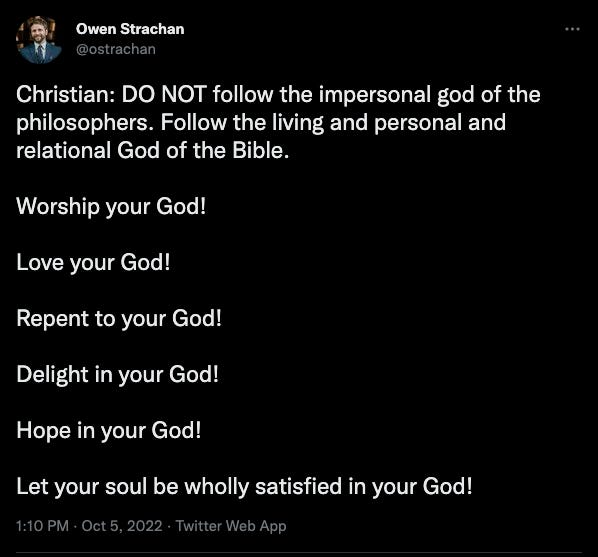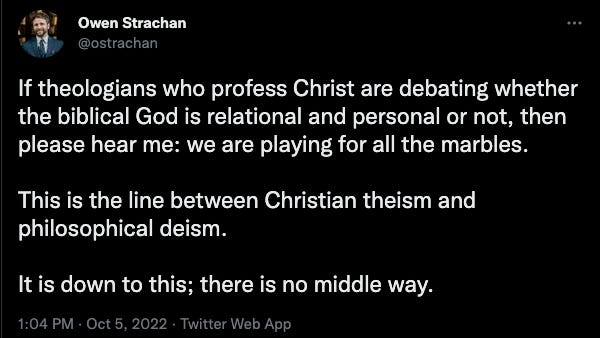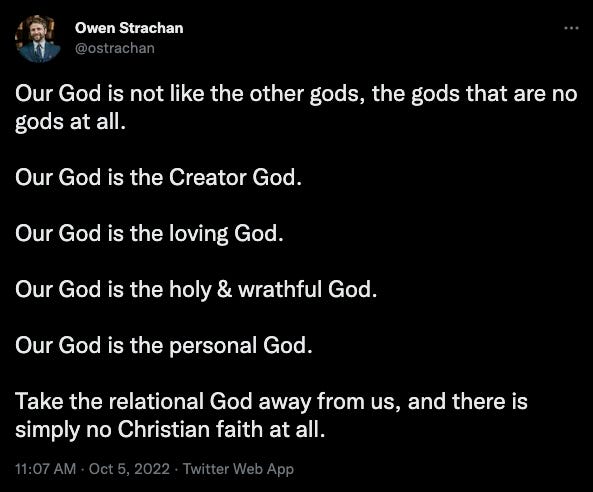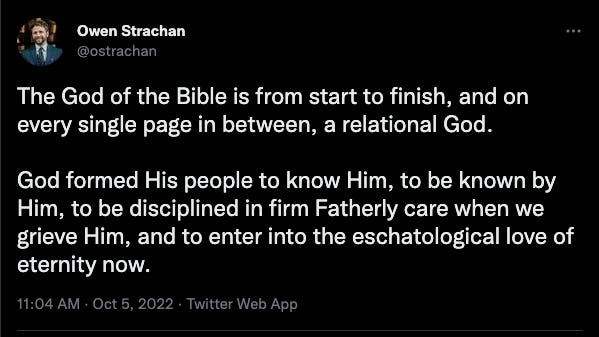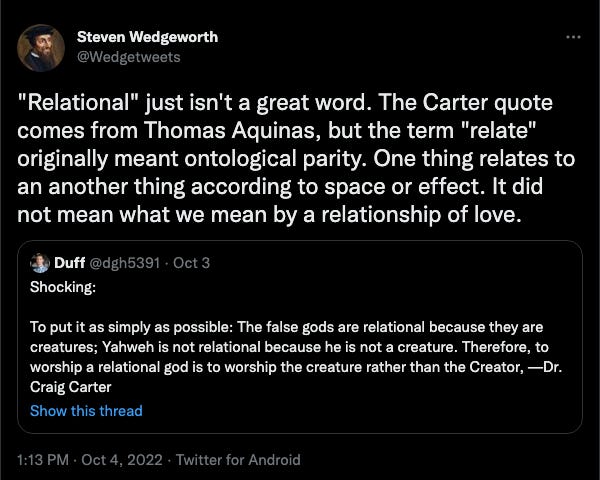Is God Relational? On the Intra-Baptist Debates regarding the Trinity
Dr. Strachan here (and elsewhere) may be subtweeting Craig Carter, who has written on God not being “relational.” Dr. Strachan names the God of the Bible as both "personal and relational." In the regular sense of relational, that is true.
For further context, here are a set of tweets by Dr. Strachan that prompted this short article.
By contrast, however, Dr. Carter uses "relational" in its traditional theological sense to mean that relationships in the world do not change God (or the like). See this 2020 interview, for example, where Carter uses that language.
Steven Wedgeworth explains further:
The subtext behind this odd use of Twitter may be that Dr. Strachan is defending his father-in-law Bruce Ware who has come under fire by people like Dr. Carter for his position that the Son eternally relates to the Father in a relation of authority and submission. (See my article on this topic here)
The whole dust up over the past few years, largely prosecuted online, has both clarified the truth better and also sadly further divided an already fragile unity among Evangelical believers. I am friends with Dr. Carter, & I have a limited personal acquaintance with Dr. Strachan.
I wish them both the best. Yet I am persuaded the Bible teaches clearly the eternal generation of the Son from the Father. This scriptural idiom should shape how we talk about Father and Son.
I reject the view proposed by Dr. Ware despite my great affection for him, since his view lacks biblical support; and the traditional view has deep biblical support.
[wp_paypal_payment]
Resources
Athanasius on the Simple God And Eternal Generation by Steven Wedgeworth
How Names Reveal the Nature of God by Wyatt Graham
The Trinity Debate: Eternal Submission and the Spectre of Arianism by Wyatt Graham
How Wayne Grudem and Bruce Ware Explain Eternal Relations of Submission and Authority in Their Own Words by Wyatt Graham
The Danger of Equating Eternal Authority & Submission with Arian Heresy by Owen Strachan





